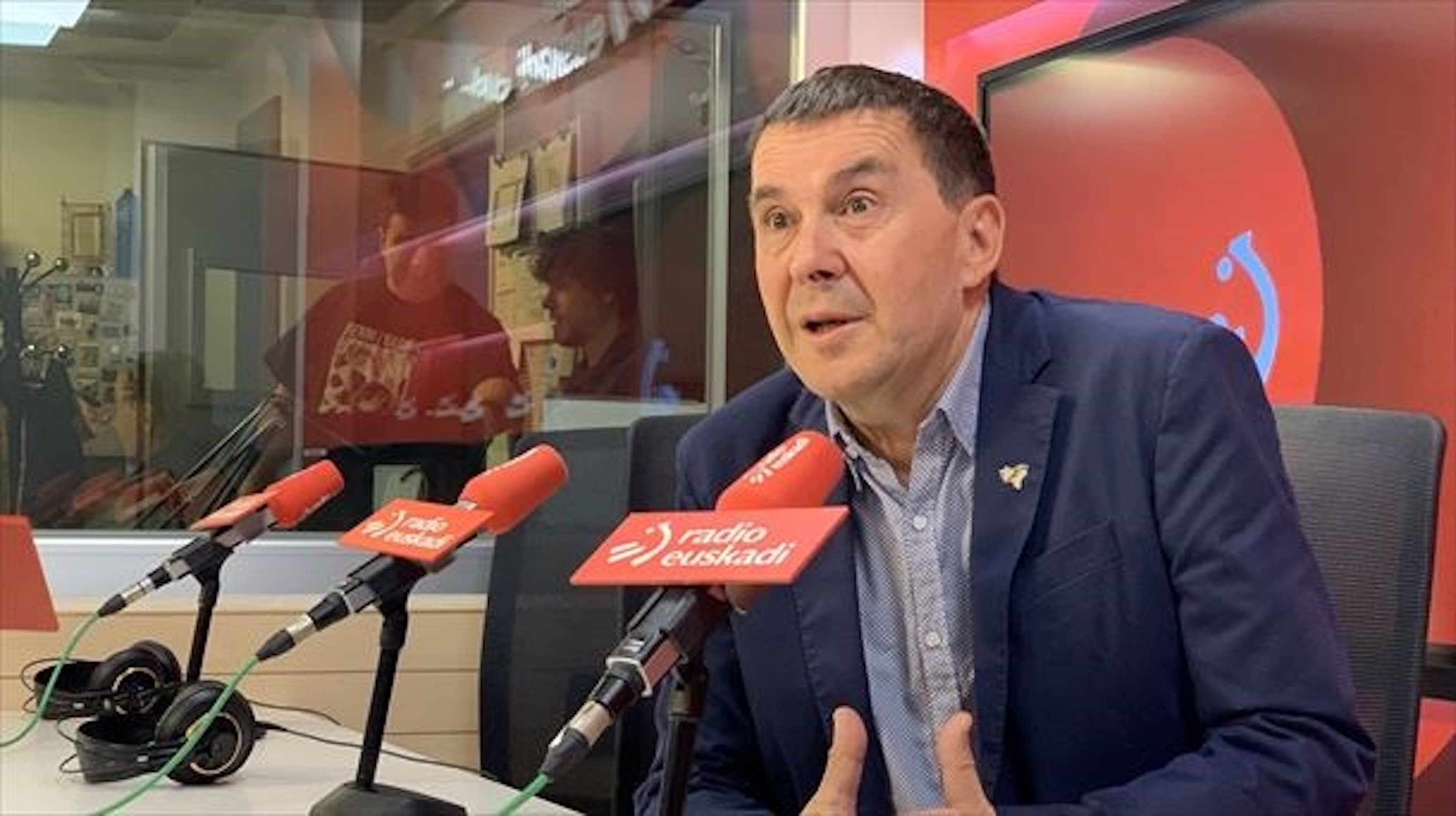Almost two years ago, the European Court of Human Rights ruled that the conviction of Basque pro-independence politician Arnaldo Otegi for terrorism took place in a trial that was unjust. This happened in November 2018. It has not been until today that the Spanish Supreme Court has overturned the ruling in the Bateragune case, as the Strasbourg court had ordered. Otegi, now the coordinator of the EH Bildu party, spent six and a half years in Logroño prison. He was not granted any kind of prison leave in that time. And it is only now, with the annulment of the trial, that the last part of the left-wing Basque leader's sentence, banning him from holding public office until 2021, has been cancelled.
The criminal chamber of Spain's high court thus accepted the appeals for review of the sentences imposed on Arnaldo Otegi, Rafael Díez Usabiaga, Arkaitz Rodríguez Torres, Sonia Jacinto Garcia and Miren Zabaleta Tellería, and accordingly overturned the 2012 decision that sentenced them to between six and six and a half years of prison for membership of a terrorist organization, in the Bateragune case. They were convicted of allegedly trying to rebuild the pro-independence party Batasuna, which had been declared illegal, under the orders of the ETA terrorist group.
In November 2018, the European Court of Human Rights overturned the ruling of the Spanish Supreme Court. The European court concluded that Article 6.1 of the European Convention had been violated due to the court's lack of impartiality. The Supreme Court says today that this “constitutes sufficient title” to review and uphold the appeal presented by the five Basque activists.
The case reached the Strasbourg court through an appeal by Otegi's defence lawyer, who sought to clarify whether the action of judge Ángela Murillo of the National Audience court had violated the defendant's fundamental rights. The defence alleged that her impartiality had been contaminated by the prejudice she had shown in a previous trial against him. Specifically, during the trial relating to a tribute to a deceased ETA leader, judge Murillo asked Otegi if he condemned ETA terrorism and, in the face of his refusal to respond, the judge stated: "I already knew you wouldn't answer that question."
As well, the defence denounced alleged bias by the presiding judge, Francisco Pérez de los Cobos, due to his membership of Spain's right-wing Popular Party, and judge Antonio Narváez, who had been the prosecutor that previously argued the case for the outlawing of Batasuna. The ECHR rejected these arguments.
The annulment of the EH Bildu leader's ban on holding public office comes just three weeks after Basque autonomous community elections were held. EH Bildu achieved its best result ever, finishing as the second largest party with 28% of the vote. Arnaldo Otegi was unable to stand as a candidate.

